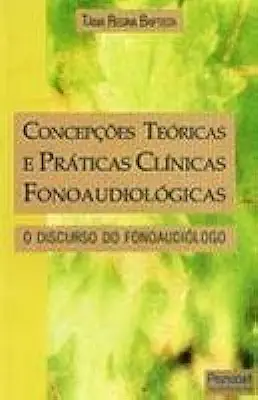
Theoretical Conceptions and Clinical Practices in Speech Therapy - Tânia Regina Baptista
Theoretical Conceptions and Clinical Practices in Speech Therapy: A Comprehensive Guide for Speech-Language Pathologists
Introduction
In the field of speech-language pathology, theoretical conceptions and clinical practices are inextricably linked. A solid understanding of theoretical concepts provides the foundation for effective clinical interventions, while clinical experiences offer valuable insights that can inform and refine theoretical frameworks. This book, "Theoretical Conceptions and Clinical Practices in Speech Therapy," presents a comprehensive exploration of this dynamic relationship, offering speech-language pathologists (SLPs) a rich resource for enhancing their knowledge and skills.
Theoretical Foundations of Speech Therapy
The book begins by delving into the theoretical foundations of speech therapy, providing readers with a thorough understanding of the various approaches that inform clinical practice. These approaches include:
- Neurolinguistics: Explores the relationship between language and the brain, offering insights into the neural mechanisms underlying speech and language processing.
- Psycholinguistics: Focuses on the psychological processes involved in language comprehension and production, shedding light on how individuals acquire, store, and use language.
- Sociolinguistics: Examines the social and cultural factors that influence language use, helping SLPs understand how language varies across different contexts and communities.
- Pragmatics: Investigates the use of language in social interactions, providing a framework for understanding how individuals communicate effectively in various settings.
Clinical Applications of Speech Therapy Theories
The book then bridges the gap between theory and practice by demonstrating how these theoretical concepts are applied in clinical settings. Each chapter explores a specific speech or language disorder, such as aphasia, dysarthria, or stuttering, and discusses the theoretical underpinnings of evidence-based interventions for each disorder. Readers will gain a deep understanding of how theoretical knowledge can be translated into effective clinical strategies that address the unique needs of individual clients.
Case Studies and Real-World Examples
To further illustrate the practical application of theoretical concepts, the book includes numerous case studies and real-world examples. These case studies provide a glimpse into the challenges and successes encountered by SLPs in their clinical work, offering readers valuable insights into the complexities of speech-language pathology practice.
Reflective Practice and Professional Development
Recognizing the importance of ongoing learning and professional development, the book emphasizes the role of reflective practice in speech therapy. Readers are encouraged to critically examine their own clinical practices, consider the theoretical foundations of their interventions, and seek opportunities for continuous improvement.
Conclusion
"Theoretical Conceptions and Clinical Practices in Speech Therapy" is a comprehensive and engaging resource that provides speech-language pathologists with a deep understanding of the theoretical foundations of their profession and the practical application of those theories in clinical settings. With its wealth of information, case studies, and reflective exercises, this book is an essential tool for SLPs seeking to enhance their knowledge, skills, and effectiveness in providing speech-language therapy services.